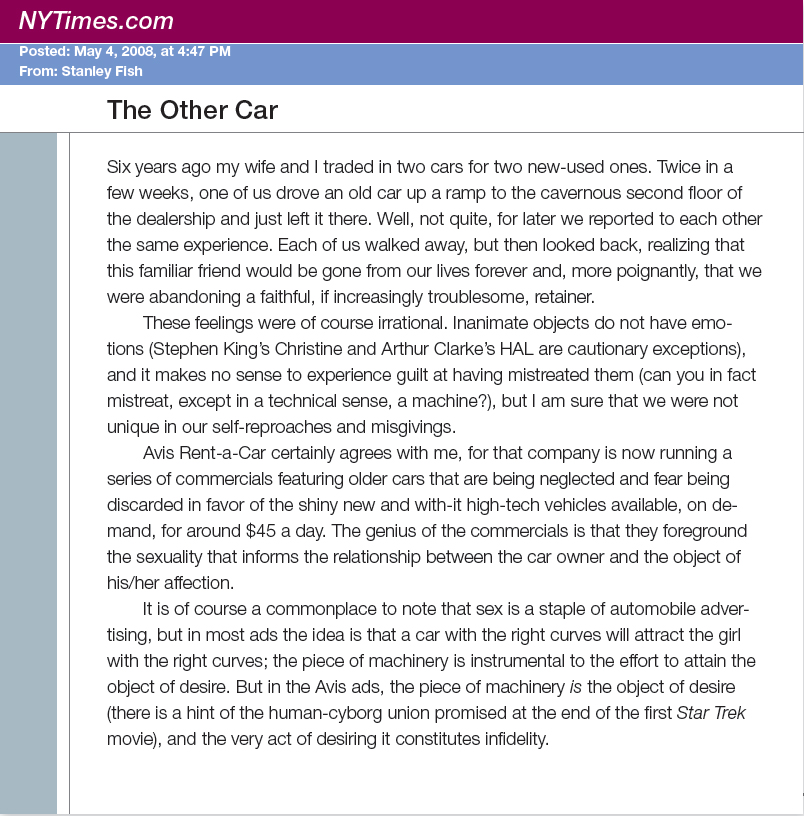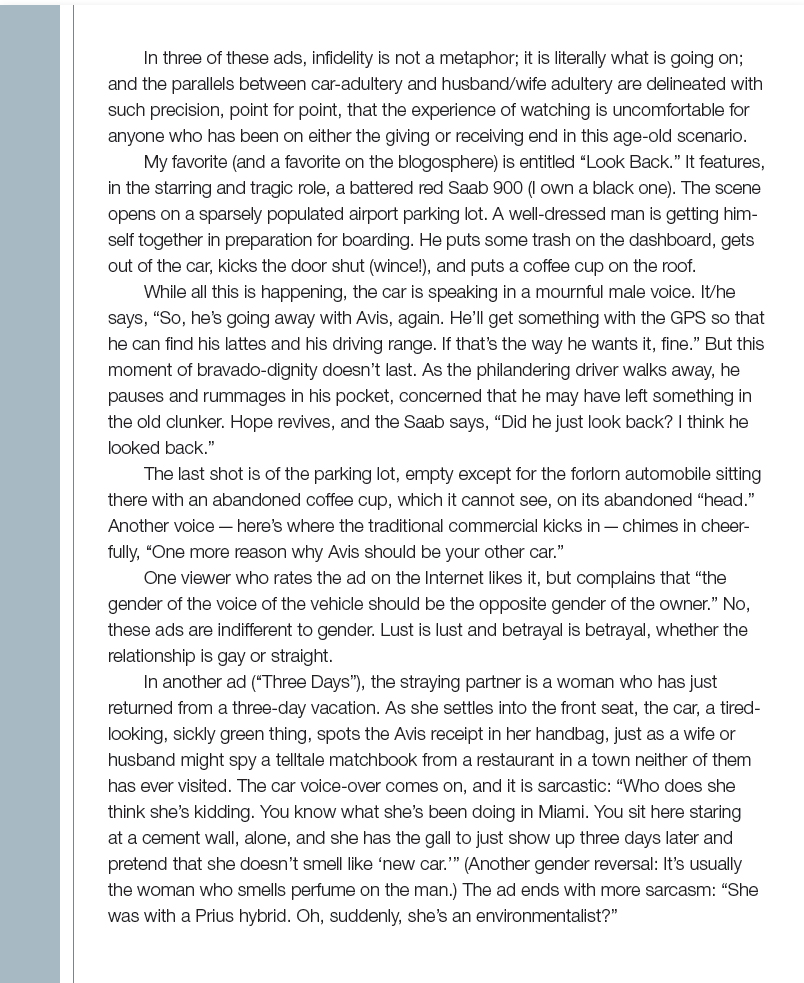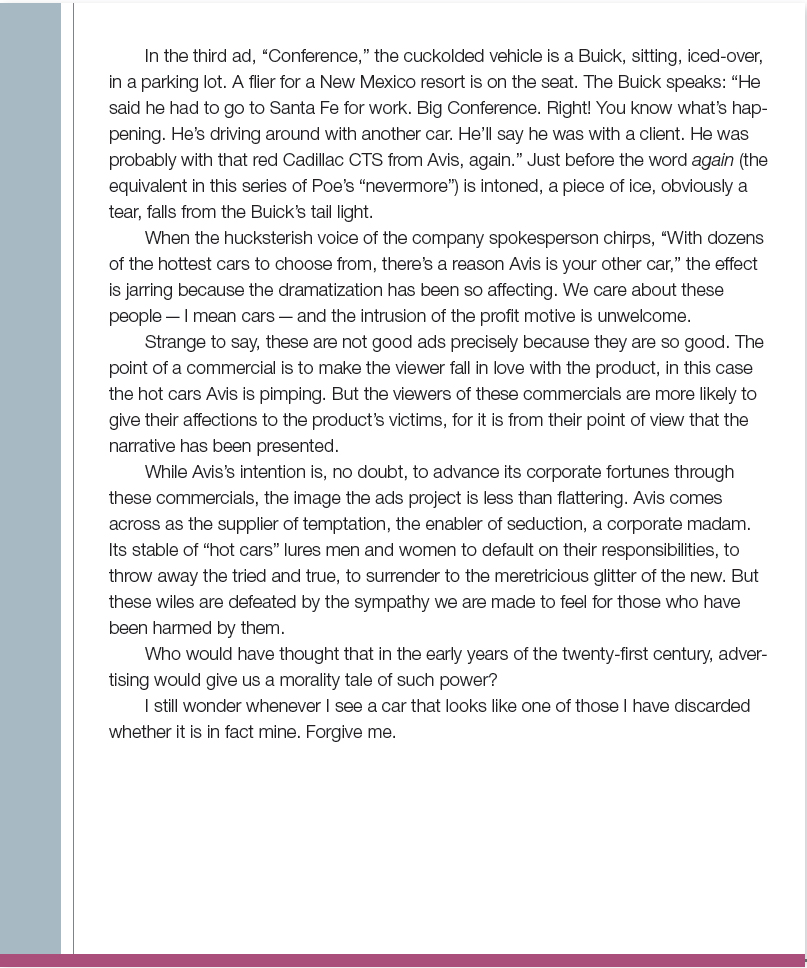ANALYSIS OF AN ADVERTISEMENT
ANALYSIS OF AN ADVERTISEMENT
Renowned teacher and cultural critic Stanley Fish has written a number of books, most recently How to Write a Sentence: And How to Read One (2011). He has taught at many colleges and universities, and though famous as a literary theorist, he also teaches law. The following article first appeared in the New York Times blog Opinionator in 2008.



Reading the Genre
Question
1. What are the rhetorical appeals that Fish identifies in the advertisements? What is the dominant rhetorical appeal of the ads? How is this appeal made, and what is the desired effect? (See “Consider how well reasoned a piece is”.)
Question
2. The online version of this article includes hypertext links to all three of the ads that Fish analyzes. What do these links add to the essay? Do we need to be able to see the advertisements ourselves to understand Fish’s analysis? (See “Make the text accessible to readers”.)
Question
3. WRITING: These ads give emotions, thoughts, and voice to inanimate objects. In this way, the advertisements’ creators get to imagine an emotional world that doesn’t exist — they write monologues for neglected cars. Write a similar monologue from the perspective of the rental car. How does it feel to be shiny and new? How does it feel to be used only temporarily, never committed to or owned? How might you create a monologue from the perspective of a new car that might be used, inversely, to sell used cars?
Question
4. MULTIMODALITY—